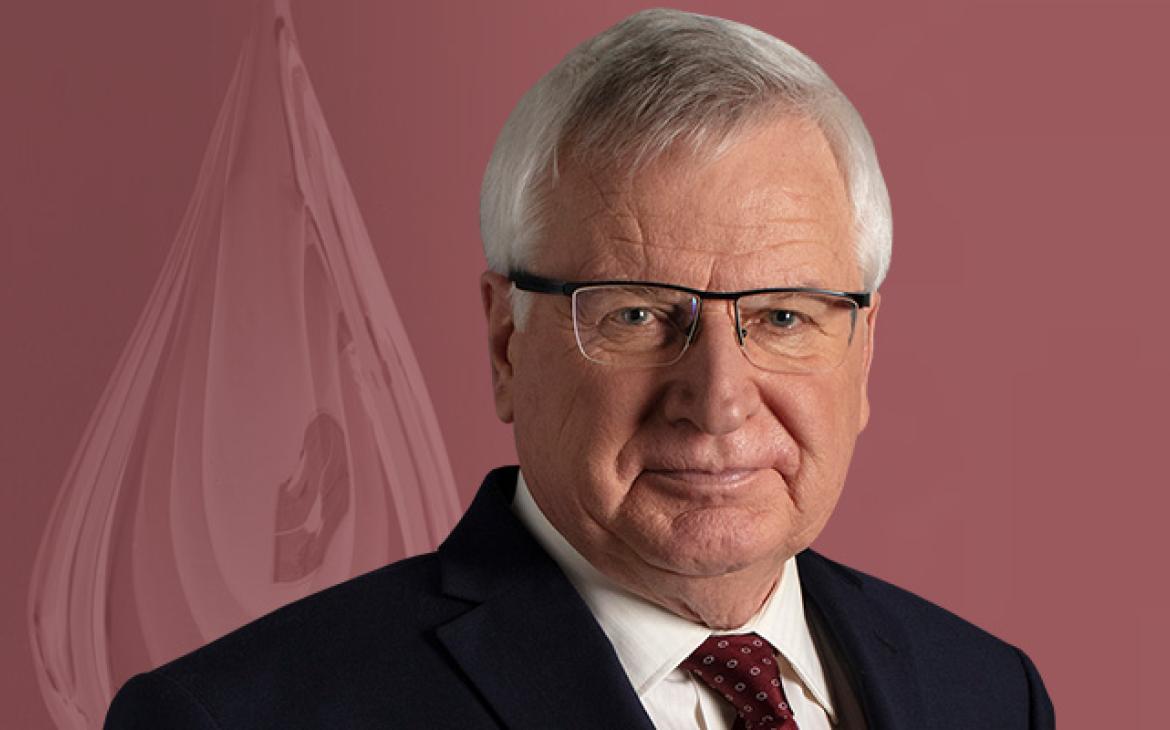
Dr. V. Srini Srinivasan, Executive Vice President and Chief Science Officer, is retiring after 29 years at the United States Pharmacopeia, where he provided leadership for documentary standard setting activities for all of USP’s compendia while overseeing the organization’s global expansion to India, China and Brazil.
Dr. Srini told colleagues in an internal blog, that he would retire at the end of April. “I have always felt it a privilege to work at USP as a staff scientist,” he said.
As the longest serving Chief Science Officer, Dr. Srini was instrumental in the global expansion of USP that occurred between January 2005 and January 2014. Calling it the ‘golden period in USP’s history,’ Dr. Srini praised the Convention, Board of Trustees, Council of Experts and USP staff for their dedication and remarkable team effort in planning and executing strategies that promote the organization’s public health mission.
USP was started in 1820 by a group of 11 physicians, whose mission – to improve public health through the establishment of public standards for medicines – has extended to include standards for food ingredients and dietary supplements. As a result, USP’s public health mission now includes efforts that promote both prevention and treatment.
Science drives USP’s standards and as Dr. Srini likes to say, “Science and standards do not have borders.” He reflected on how prior to USP’s globalization, USP staff would visit India, China, Brazil, Ghana, Ethiopia and Switzerland “as visitors.” “But today,” he added, “We go to our second homes.”
USP’s globalization has brought the organization closer to its international stakeholders, thus enriching the Convention and leading to a more diverse membership. Indeed, the organization has also been enriched with highly skilled staff from all over the world. USP is a melting pot of numerous cultures that have led to “a new global USP culture.”
During his time, USP’s chemical testing laboratory expanded vastly, to include chemical, microbiological and biological testing capabilities in USP-U.S., USP-India, USP-China, and USP-Brazil. Today, USP has about 165,000 square feet of laboratory space.
USP has recently embarked on an ambitious program of keeping public standards current and reflective of the quality of medicines in a global marketplace. Historically, the organization has depended on, and continues to depend on, pharmaceutical manufacturers to submit their revision proposals, reflective of their periodical supplemental updates to the FDA. But even as they continue to help USP in this way, the number of USP monographs has increased dramatically over the years to over 4600 monographs, whereas manufacturers’ submissions have not kept the same pace.
“Thus,” Dr. Srini added, “By utilizing our increased laboratory capabilities around the globe, USP is now able to complement industry efforts through the monograph modernization program.”
Regarding the future, Dr. Srini is as optimistic as ever about USP’s role in public health and the quality of medicines.
“For over a century, synthetic organic chemical medicines have dominated the field of medical treatment and USP has always kept current with this trend,” he reflected. “However, as the focus of medical research changes to biological medicines, USP is well poised to assume leadership in the establishment of public standards for this field. Our biological laboratories located in the U.S., India and China are staffed with highly qualified scientists with excellent modern analytical instruments at their disposal. A well-integrated biological work plan in a diversified field of biologics, such as blood products, vaccines, synthetic peptides, bio-therapeutic proteins and monoclonal antibodies that utilizes the scientific expertise of the staff and laboratories facilities spread across our USP global sites is well under execution.”
Before joining USP in 1986, Dr. Srini was Divisional Manager of Research and Development and Quality Assurance and Quality Control at Glaxo India. He has a Ph.D. in organic chemistry from the University of Western Ontario, London, Ontario, Canada, and is currently a member of the Drug Information Association, American Society for Nutritional Sciences and the American Society for Clinical Nutrition.
Asked where he would be going from here, Dr. Srini said he wants to spend the rest of his time volunteering. In the last eighteen years, his work has taken him to more countries than most people could possibly visit in a lifetime. But he has yet to set foot in Australia. Perhaps the time has come.
***Please feel free to post your comments to Dr. Srini in the comment box below.


